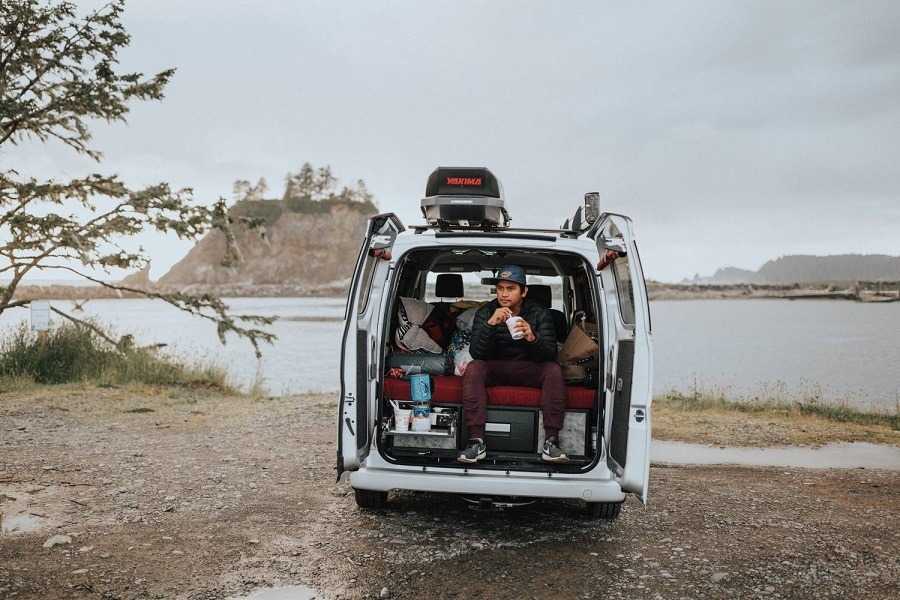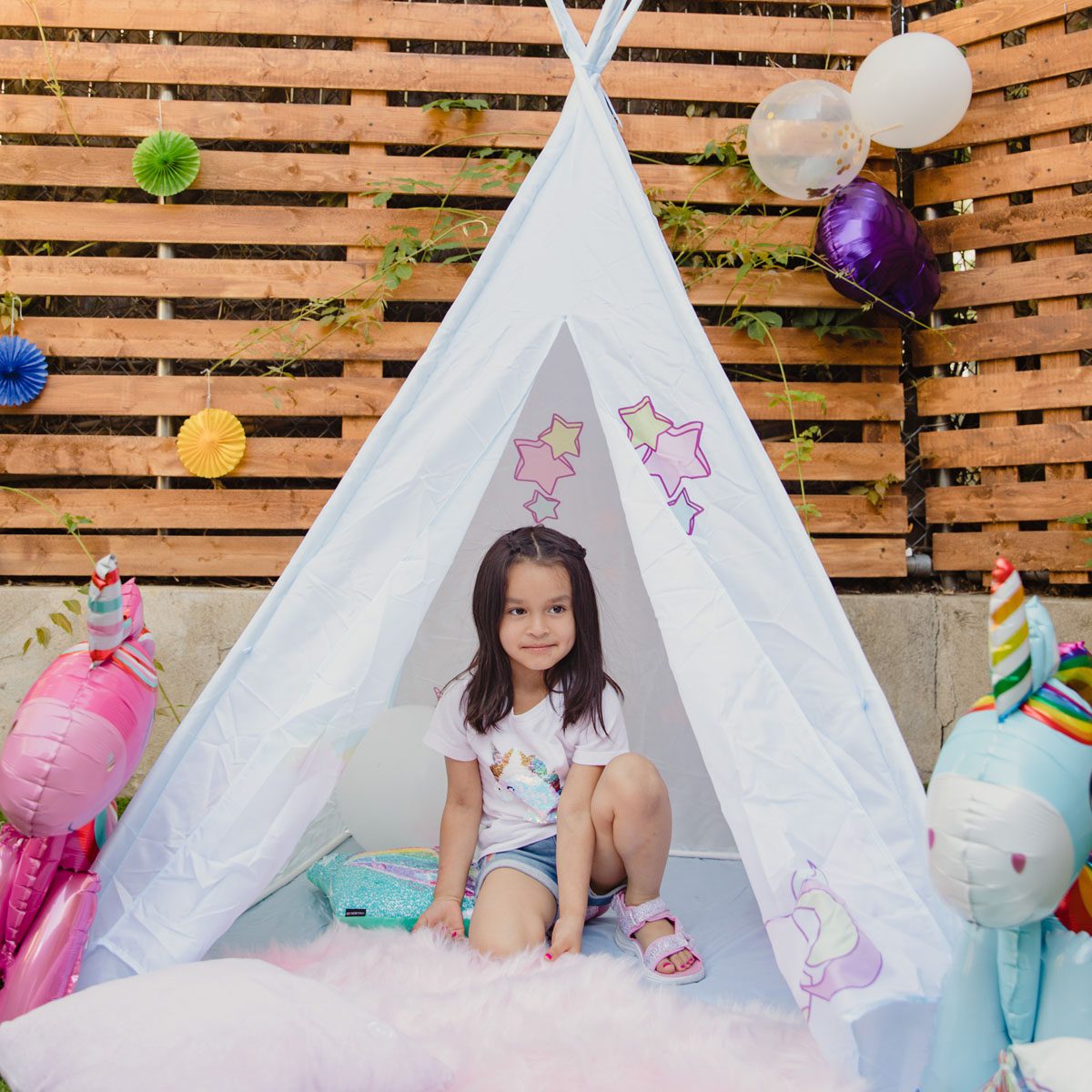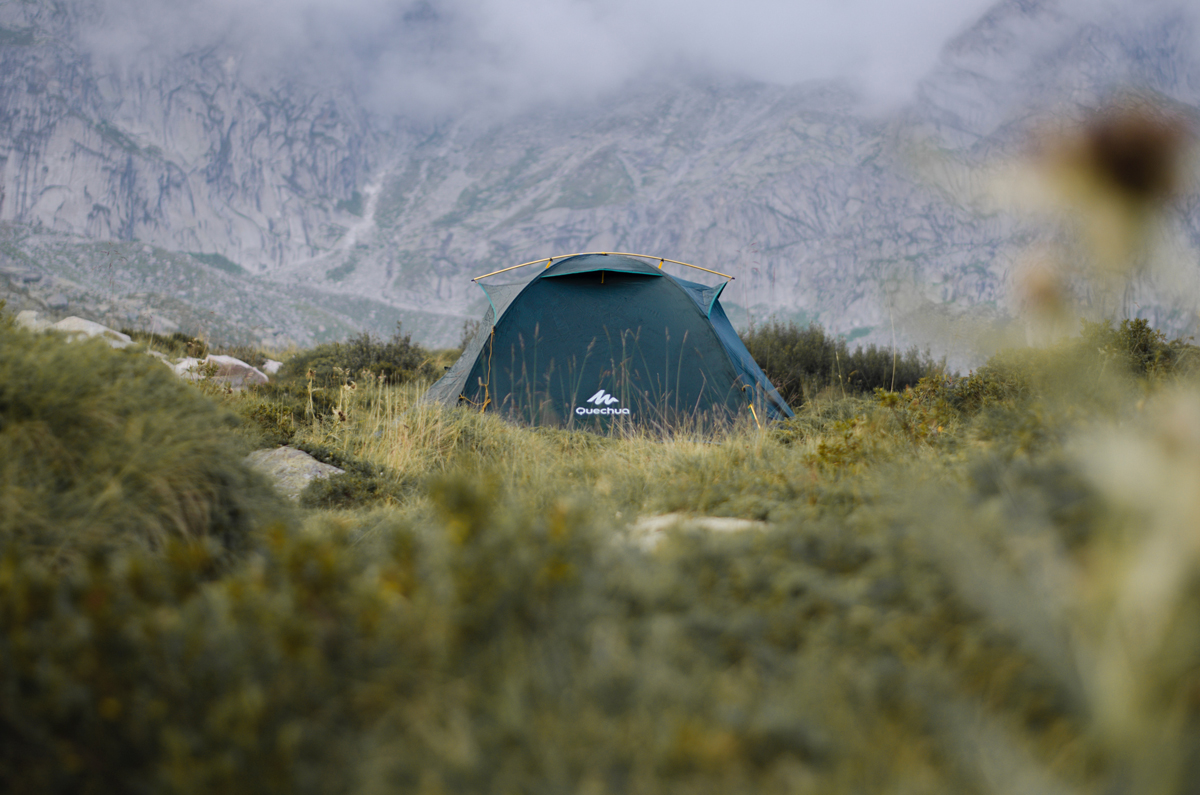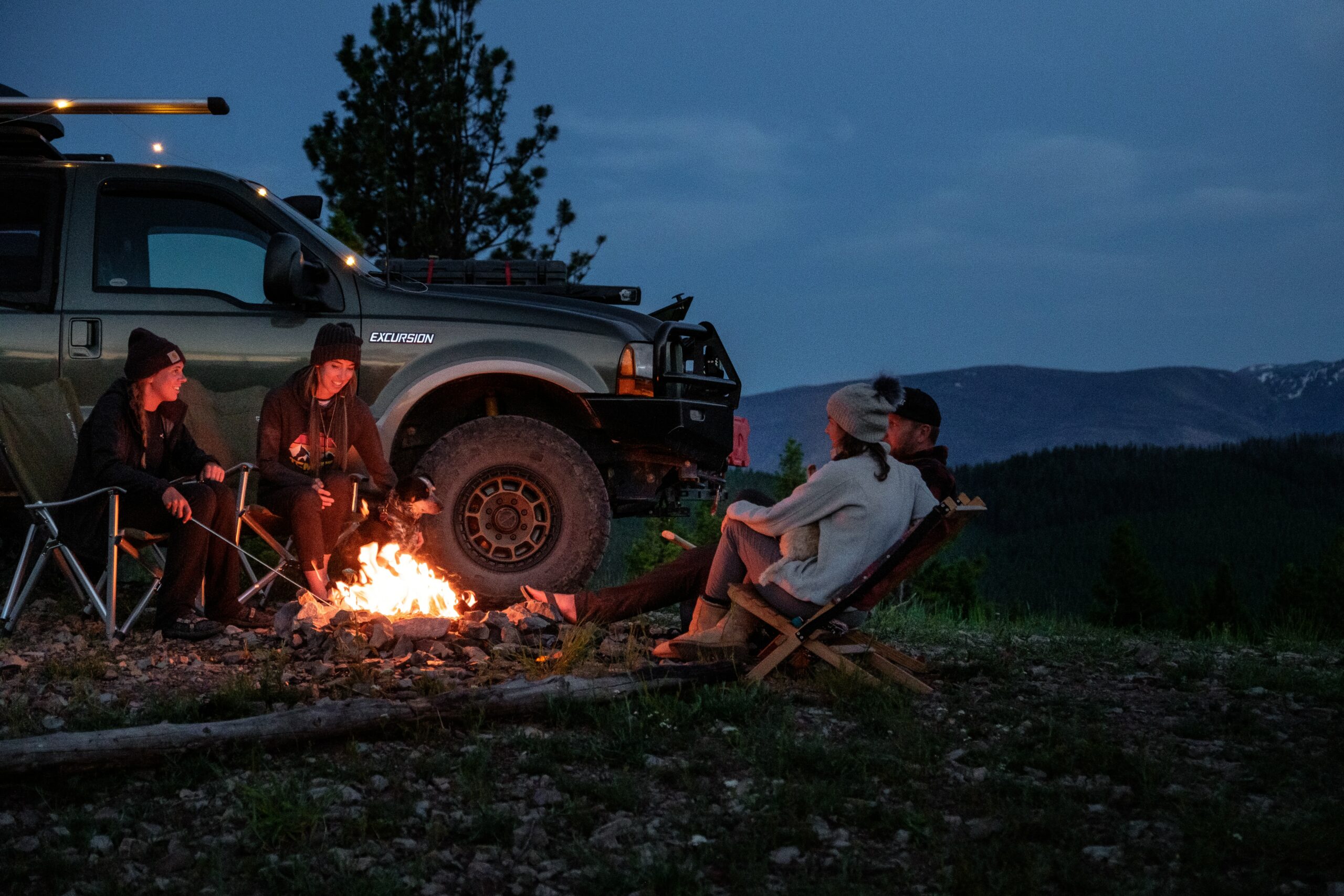Phone
+1-650-666-095
Contact E-mail
[email protected]
Address
16192 Coastal Hwy, Lewes, DE 19958-3608
The Best 20 Camping Sleeping Tips You Need to Know Before Your next Trip
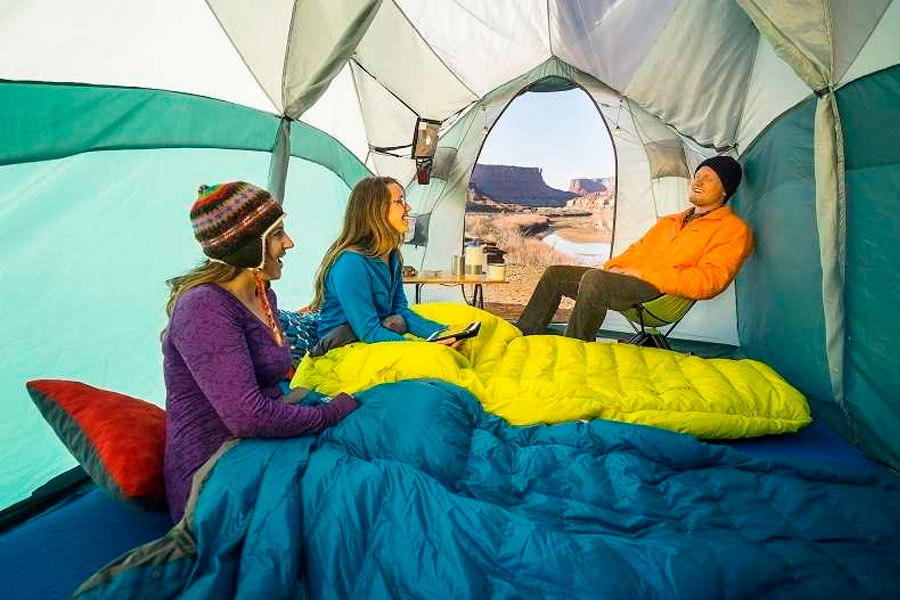

There is nothing worse than getting a bad night’s sleep, and too many people immediately associate camping with poor sleep. This doesn’t have to be the case if you’re properly prepared! We have the best camping sleeping tips you didn’t even know you need.
You might not find the same comfort of your bed at home, however, any seasoned camper will be able to tell you that some of the best night’s sleep they’ve ever had was in the great outdoors. Let us provide you with 20 camping sleeping tips for your next outdoor overnight.
Our 20 Top Camping Sleeping Tips
We are bringing you the best camping sleeping tips for a good night’s sleep out in the wilderness. Enjoy!
#1: Choose Your Campsite Wisely
When planning and preparing for your camping trip ahead of time, keep your location in mind. Take note of how close you are to a road, what elevation you’re sleeping at, and what types of rules and regulations you must follow at your campsite.
Noise, light pollution, and exposure to the elements can really ruin a good night’s sleep! A dark, quiet spot away from roads and towns is ideal for camping.
Keep your elevation and terrain in mind when planning as well. The higher the elevation the more the temperature will drop at night and the more erratic weather patterns may be. It’s important to be prepared!
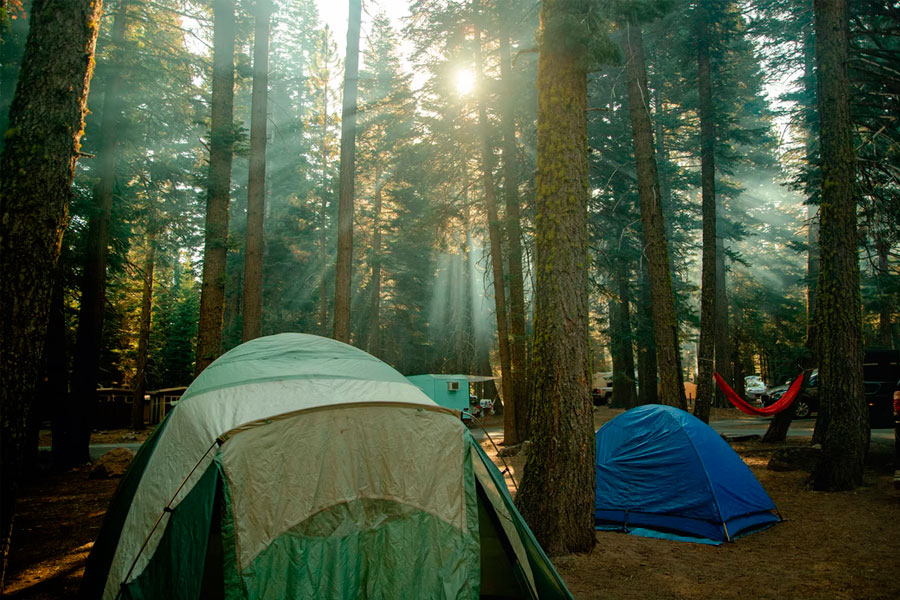

#2: Pitch Your Tent in a Strategic Spot
Where you pitch your tent matters. You’re going to want to choose a spot that is level and away from the campfire, parking area, and other tents.
Choosing a level space will help you stay comfortable throughout the night. If there is a slight pitch to your set up, make sure your head is always on the higher side. Neighboring tents or close proximity to the campfire can keep you up at night when you’re trying to go to sleep. If you turn in early and a group is still enjoying the fire, you’ll have trouble tuning out their conversation. Similarly, if a neighboring camper snores very loudly or makes a lot of noise when they wake up, that will disrupt your sleep as well.
#3: Add Comfort With A Quality Sleeping Pad
A quality sleeping pad will provide comfort in a number of ways. The cushioning a sleeping pad offers provides a comfortable surface to sleep on. Sleeping pads come in different lengths and widths to ensure all bodies can find comfort while sleeping outside!
Sleeping Pads also provide insulation. Arguably, its most useful function, a sleeping pad’s R-value will determine how much heat you will retain while you sleep. Heat travels from its source to a colder place; a sleeping pad prevents heat loss to the ground.
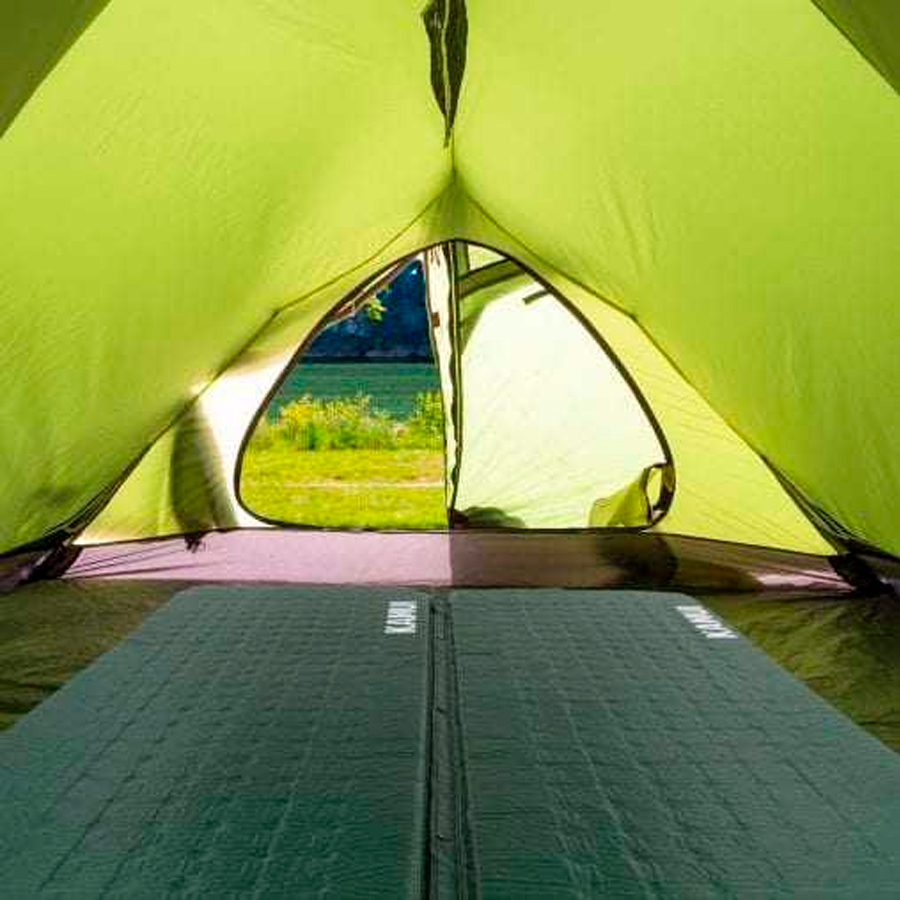

#4: Stay Warm with the Perfect Sleeping Bag
A quality sleeping bag is a game-changer when sleeping outside. Sleeping bags provide both comfort and basic insulation. The cushioning on your back is a soft, cozy barrier between you and your sleeping pad. Additionally, sleeping bags help to trap the heat that leaves your body. This helps to keep you at a comfortable temperature while you’re sleeping!
#5: Bring a Pillow Along
This is a no-brainer! If you’re car camping, bring a full-size pillow along for the trip. Your head and neck will thank you for a sleeping situation that closely resembles home.
If you’re backpacking, you have a few options for packable pillows that provide overnight comfort. An inflatable pillow takes up very little space and can be adjusted to the fitness of your liking. If an inflatable pillow isn’t a possibility, stuff your sleeping back sack with your extra clothing and other soft items to create a make-shift pillow.
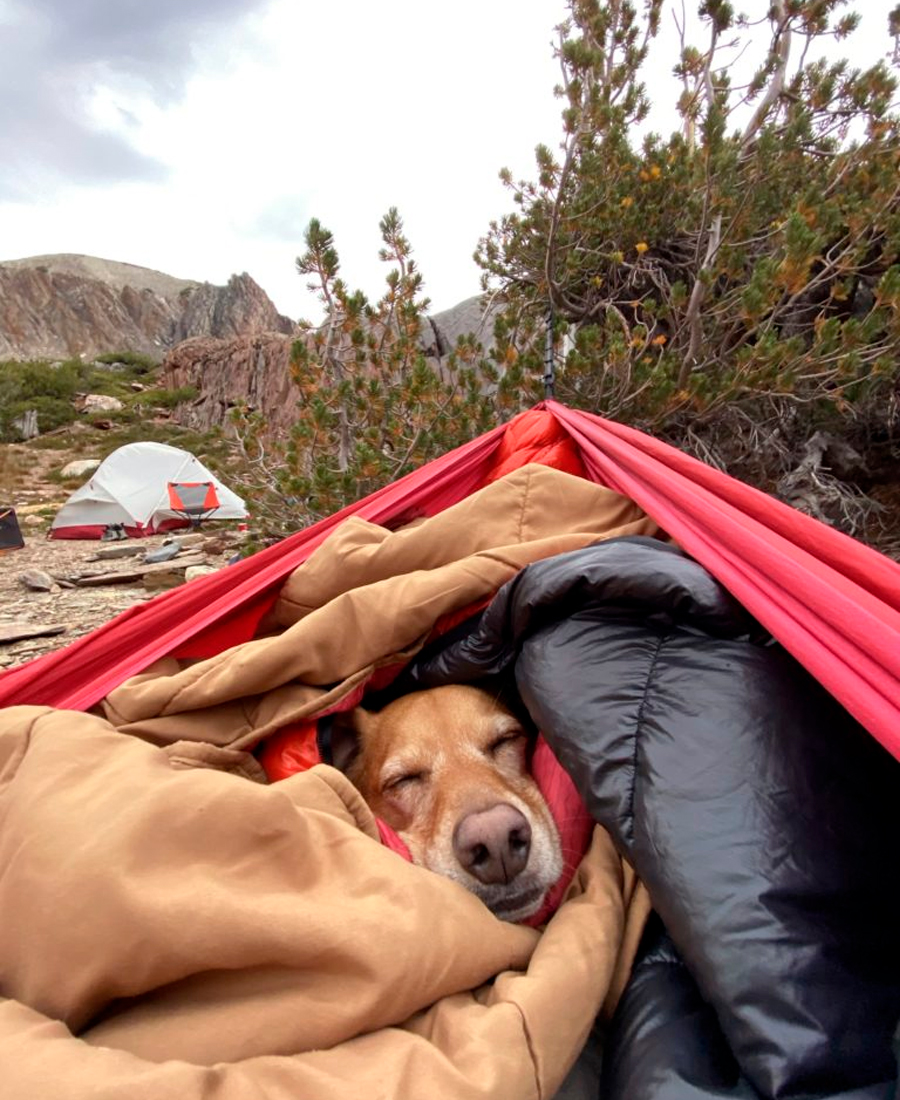

#6: Test Run Your Tent!
Taking your tent on a test run is key to your success in the wilderness! This test run can take place in your backyard or in your living room. Anywhere you can set camping gear up for the night works.
This provides you the opportunity to practice setting up your tent without any pressure. You’ll also be able to test run your sleeping setup to make sure it’s comfortable enough for you to have a good night’s sleep. It’s best if you can give your tent a test run outside to experience how your sleeping arrangements will hold up in different types of weather.
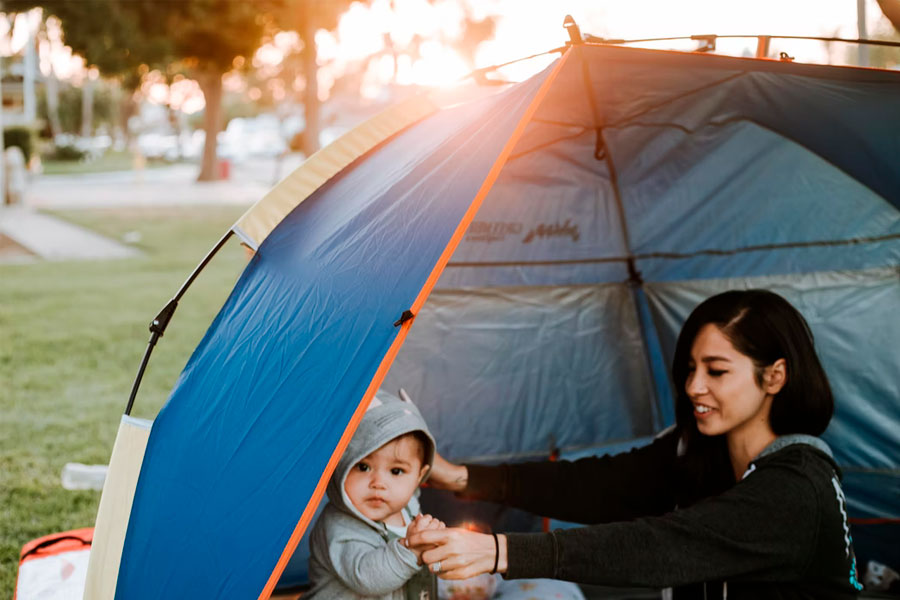

#7: Use a Ground Cloth or Tarp
A ground cloth or tarp acts as a protective measure for your tent. Laying a tarp down under your tent provides an additional layer of protection from sharp objects, such as rocks and sticks.
Ground cloths and tarps also protect you from dew and ground moisture while sleeping. They are especially helpful when camping in wet weather. If you set your tent and tarp up in the rain, be sure to fold your tarp edges so they don’t stick out past the footprint of your tent; this will prevent your tarp from collecting water and soaking the bottom of your tent and everything inside of it. A wet sleep is an uncomfortable sleep!
#8: Fend Off Mosquitos and Other Bugs
Although mosquitos and other bugs are an accepted part of being outside, having them share your sleeping arrangements is simply not enjoyable. You’ll have a much better night’s sleep knowing you aren’t being bit by or crawled on by local insects.
Using bug spray on your person and/or your clothing items and gear is a great way to deter bugs from hanging around. There are many different kinds of sprays ranging from 100% DEET to natural blends consisting of various essential oils. Another great option for camping is the ThermaCell. Portable Thermacells create a 12-15 foot radius where mosquitos, black flies, and other biting insects are repelled. This can prevent bugs from ever having the opportunity to enter your tent and ruin your camping trip!
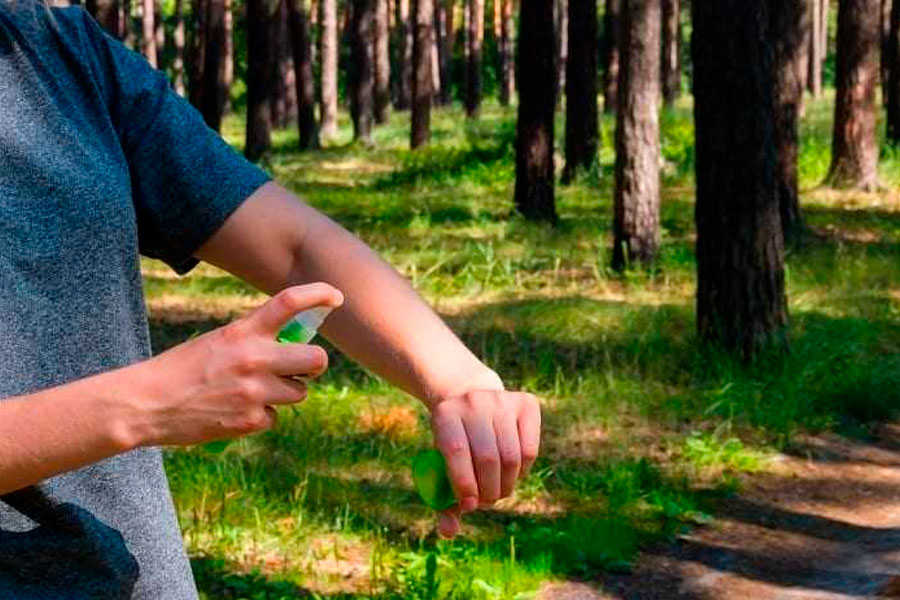

#9: Be Active During the Day
Exercise physically tires you out, therefore, the more physically active you are throughout the day, the more your body pushes you to sleep at night. Initially, physical activity releases chemicals that help to keep you awake. This is why it’s important for you to be active at least 2 hours before bed.
Thirty minutes of aerobic activity per day can lead to improved sleep quality. Exercise causes your core body temperature to rise. When it starts to return to normal, about 30 to 90 minutes after exercise, it facilitates sleepiness.
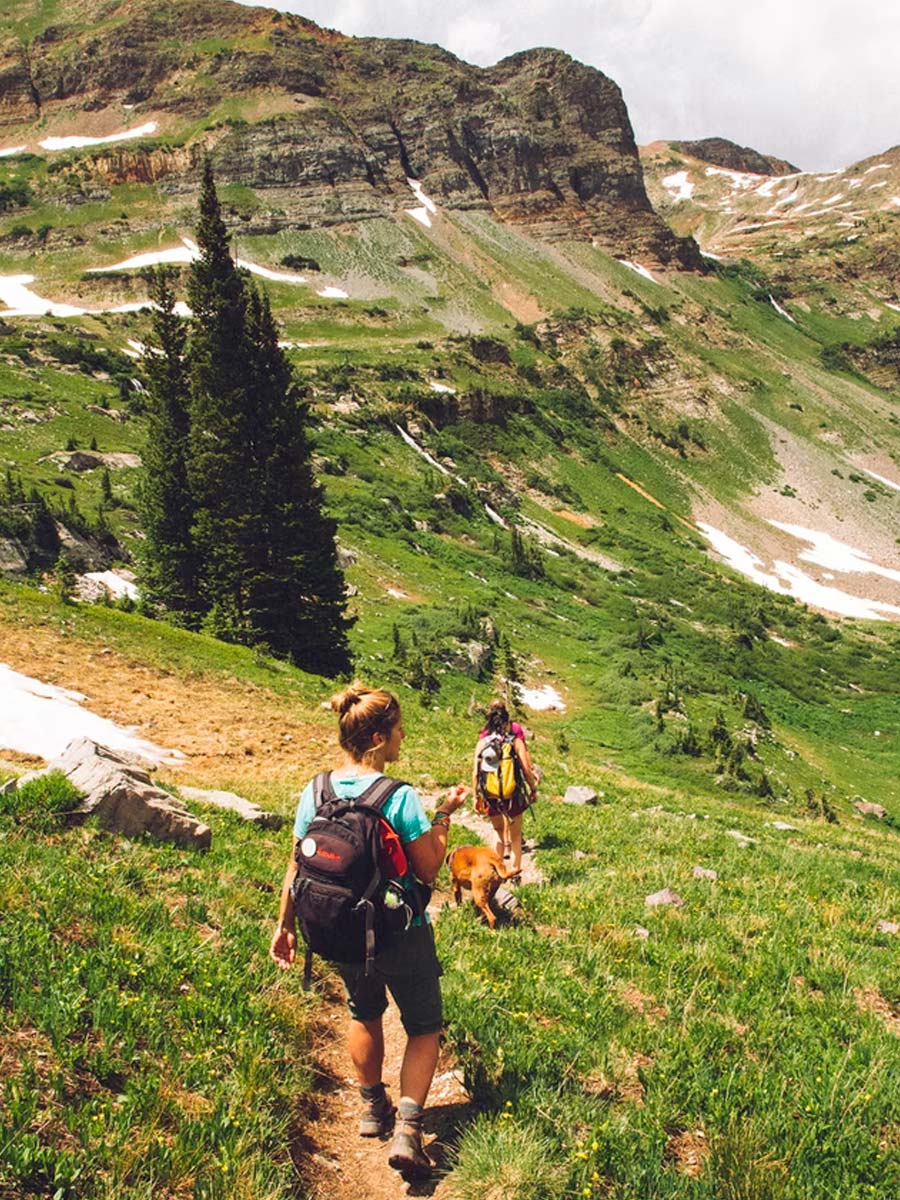

#10: Sit Around a Cozy Campfire
Sitting around a campfire at night can help you to feel warm, cozy, and ready for bed. The flickering flame, crackling sounds, warmth, and smell are rooted in our evolution as humans. Since the stone age, the human race has felt safe and warm by bonding over a fire.
A good campfire is relaxing, soothing, and soul-lifting. A warm, roaring fire decreases blood pressure thus helping you to feel more tired. The longer an individual sits around a fire the more relaxing an effect on the person.
#11: Don’t Drink Too Much Liquid
Too much liquid right before bed means going to bed with a full bladder. A full bladder can lead to urinating throughout the night. We suggest limiting your fluids intake two hours before bed if you don’t want to interrupt your sleep to get out of your tent and use the bathroom.
Additionally, limiting your caffeine and alcohol intake should decrease the number of times you will need to use the restroom. Both of these items are bladder stimulants and can cause frequent nighttime urination.
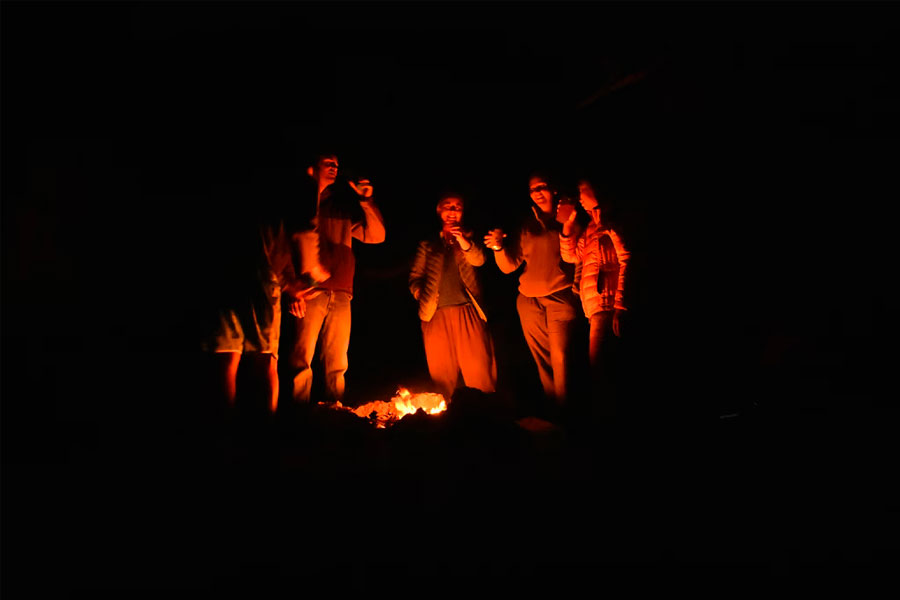

#12: Know Where Your Toilet Is
Even if you limit your fluid intake, chances are you’ll have to use the restroom at least once during the night. Rest easy knowing where you have to go if and when the need to go arises. Familiarize yourself with the landscape and utilize landmarks, big and small, to find the privy or previously marked cat hole area!
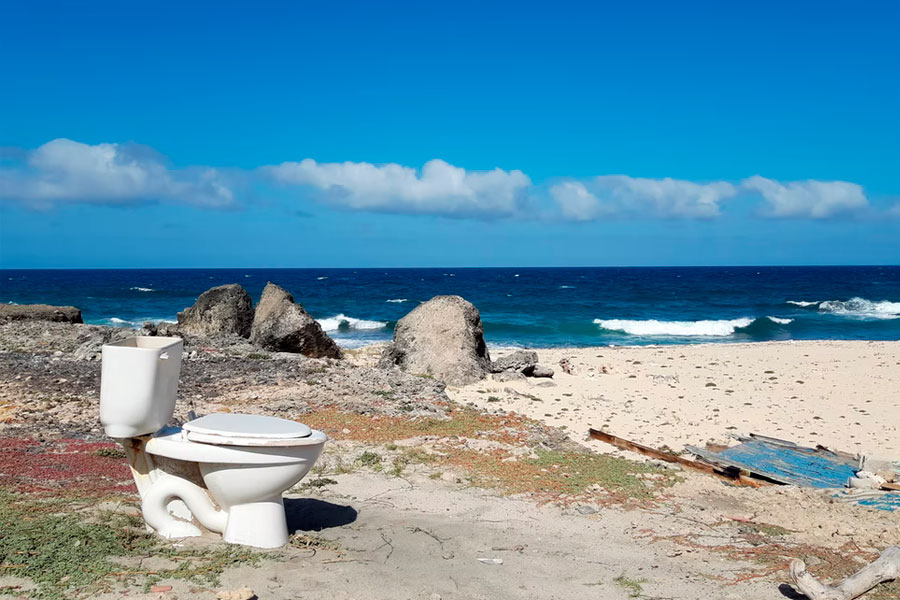

#13: Don’t go to Bed Cold
Your core temperature is so important for overall warmth! Keep warm and you’re bound to be comfortable.
Before you go to bed do a few jumping jacks, drink something warm, or sit close to the fire. Raising your core temperature before bed does wonders for trapping heat in your sleeping bag!
#14: Follow Your Same Bedtime Routine
What do you do before bed every night? If you read, stretch, or journal before bed, make sure you make time for that routine while camping as well. This will help you to create the best possible sleeping situation.
Tieing up the loose ends each night and allowing your body to relax provides great benefits to your car sleep quality. Don’t ditch your regular routine while you’re out in the wild! Adapt it, best you can, to your current situation and sleep well.
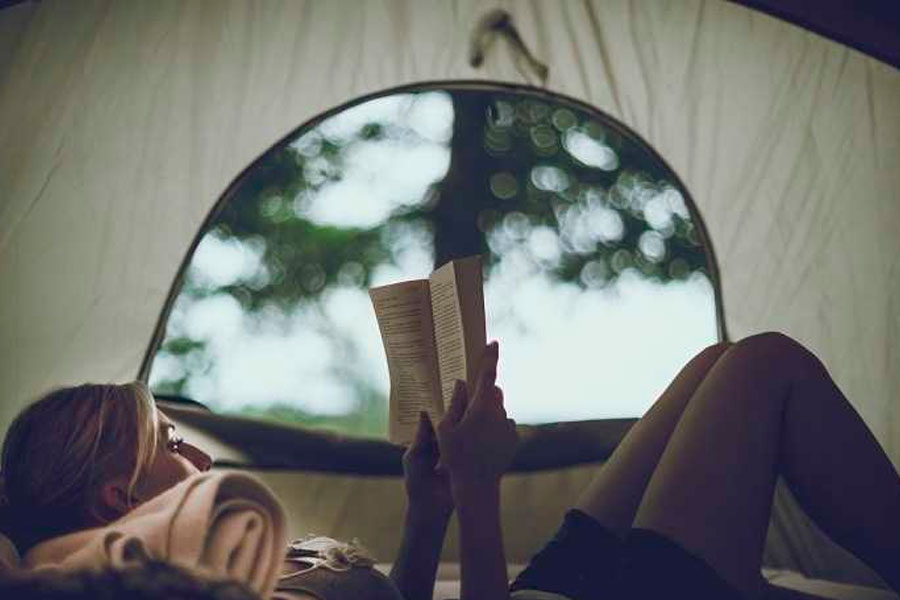

#15: Don’t Overdress
Although being warm is important, sometimes less is more. It is possible to wear so much extra clothing that you compress the insulation in your sleeping bag, reducing the warm air it traps. Wearing too many layers can also impede blood flow, resulting in much colder sleep.
It is best practice to wear a dry base layer, including bottoms, a top, socks, and potentially a hat, in your sleeping bag. This helps to keep your sleeping bag clean and your body warm while you sleep.
#16: Store All Food and Scented Items Outside Of Your Tent
If you’re finding it difficult to sleep because you’re afraid of wildlife, removing all food and scented items from your tent should help you rest assured. Food and scented items attract wildlife. Storing them outside and away from your tent will prevent animals from trying to join you in your slumber.
Food storage, such as bear bags and cans, should be set 100 feet from your campsite. It’s important that you don’t store bear cans near cliff edges or water. Bears and other animals might accidentally knock the can away while trying to get to the food inside. In many campsites, a metal bear locker may be provided for you. Additionally, storing your food inside of a container in your locked vehicle is also an approved practice.
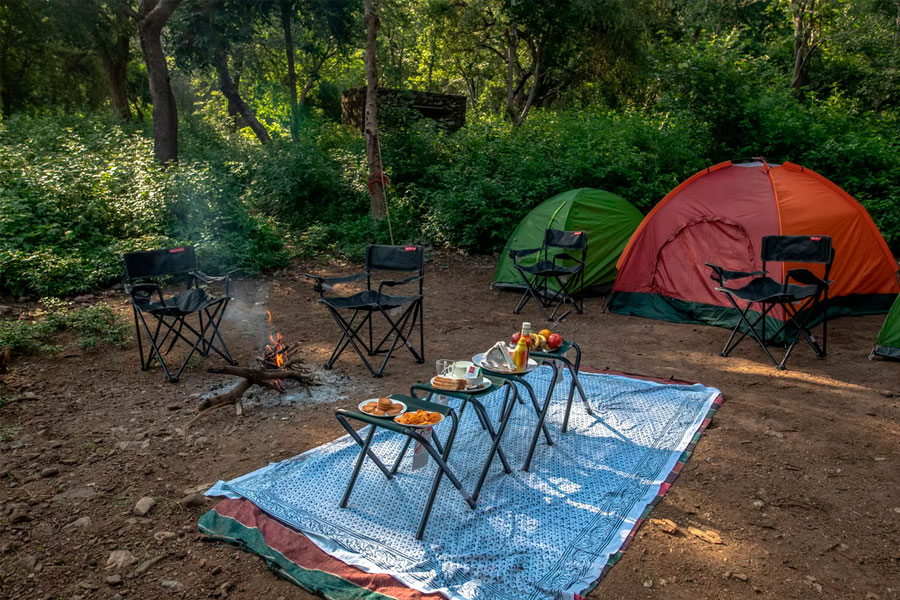

#17: Bring Earplugs and/or An Eye Mask
Prevent the sounds of the night and early morning light from keeping you awake. Bring earplugs and an eye mask to shut out sound and light and improve the quality of your sleep. The quality of your sleep matter just as much, if not more, than the quantity of your sleep.
If every little sound causes you to sit up in terror, earplugs might provide you with the soundest sleep you’ve ever had in the wilderness! Similarly, an eye mask can be incredibly helpful as well. Maybe you like to go to sleep before your buddies and the light from the fire floods your tent, or maybe you like to sleep in and that early morning sunshine wakes you up too early. No matter your reasoning, earplugs and eye masks make for great camping companions!
#18: Keep Necessities in Arms Reach
There’s nothing worse than waking up in the middle of the night and not having access to what you need. Necessities like water, toilet paper, tissues, and your headlamp can’t be tucked away in your bag overnight.
Utilizing a gear loft, or interior wall pockets within your tent can help you to stay organized. Having everything you need right next to your pillow will ensure you never spend extra time searching for your headlamp when you could be sleeping.
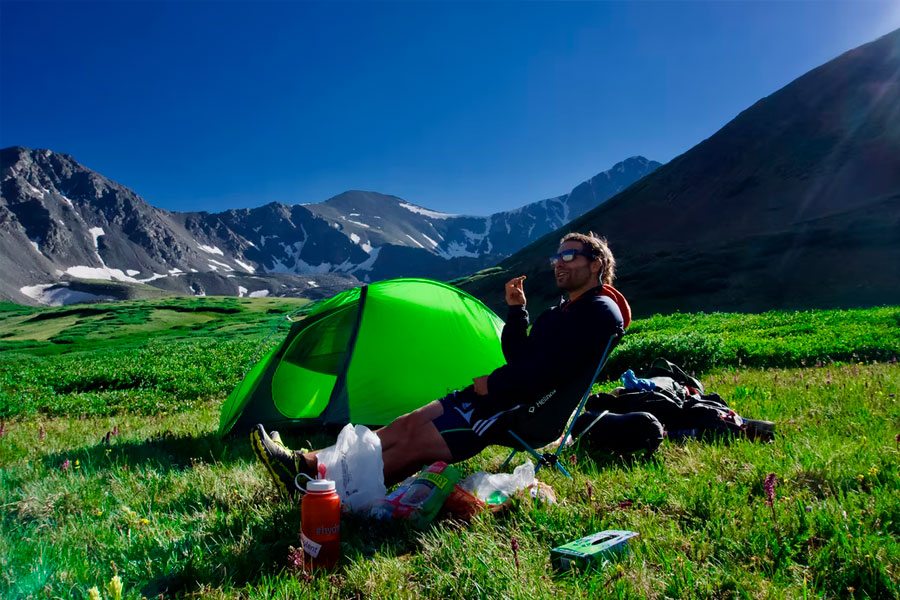

#19: Stay Up Late!
Go to bed tired. It’s as simple as that! The more tired you are, the more likely you are to fall asleep as soon as your head hits the pillow. Play a game of cards, read a book, or roast marshmallows to help you stay awake.
On average, people go to bed 2.5 hours earlier when they’re camping than they do during their everyday lives. It’s easy to fall into the same routine as the sun when electronics, such as artificial lighting, are less convenient to use. Unless you’re absolutely exhausted, refrain from laying down with the sunset and try to stay up to your normal bedtime hour.
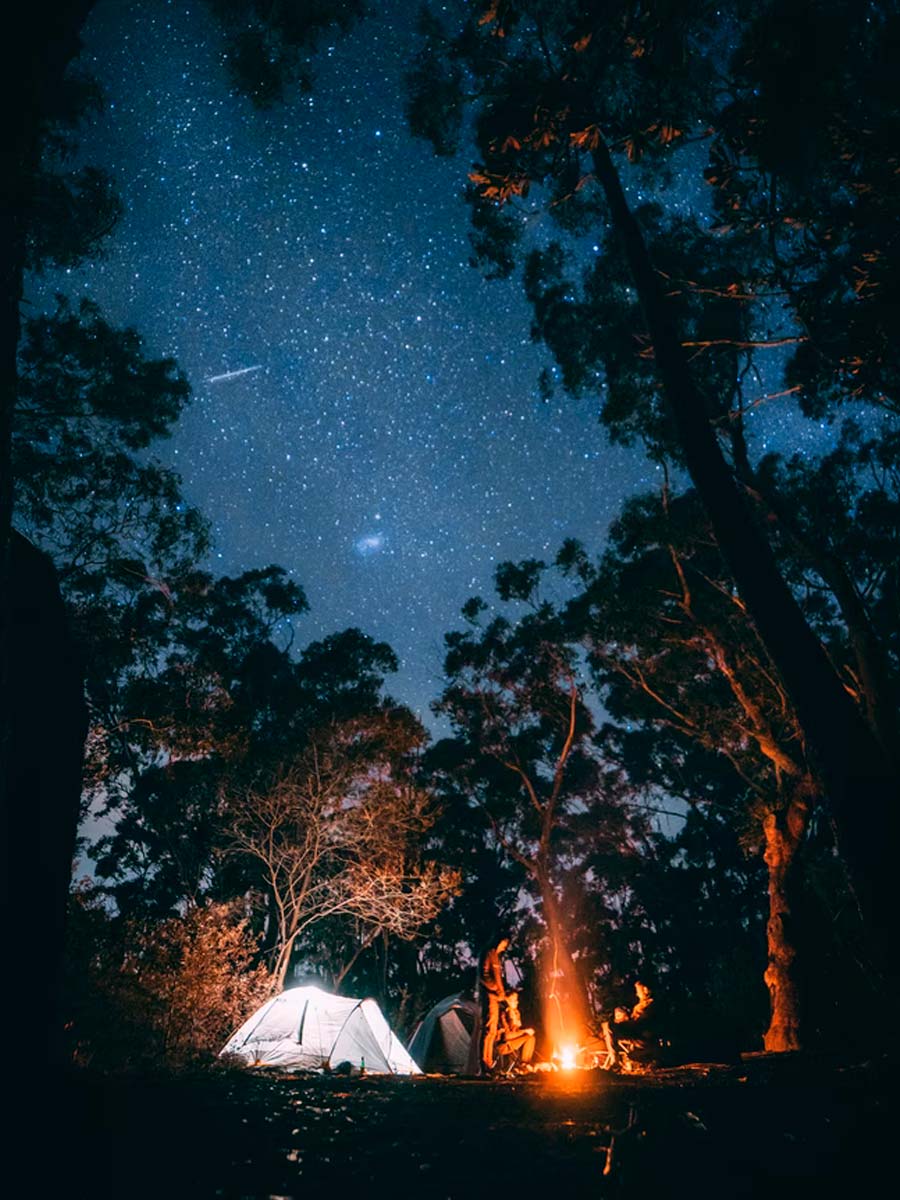

#20: Night Noises
Noises in the night can really keep people from enjoying a good night’s sleep. Those noises are only amplified by sleeping outside. A slight breeze can cause sticks to fall from the treetops, sounding like massive thuds outside your tent walls. Channel your practical side and realize that there are many reasons for noises in the outdoors.
Similarly, that animal rustling around in the leaves outside your tent might sound like it’s a bear but it’s likely a mouse, squirrel, or chipmunk. Luckily, those animals might steal your food if you left any out but they aren’t likely to bother you. Ensuring proper food storage should also deter animals, big and small, from entering your camp and making alarming noises.
Sleeping near running water or the found of waves lapping up on the shore might provide the perfect lul you need to fall into a deep sleep!
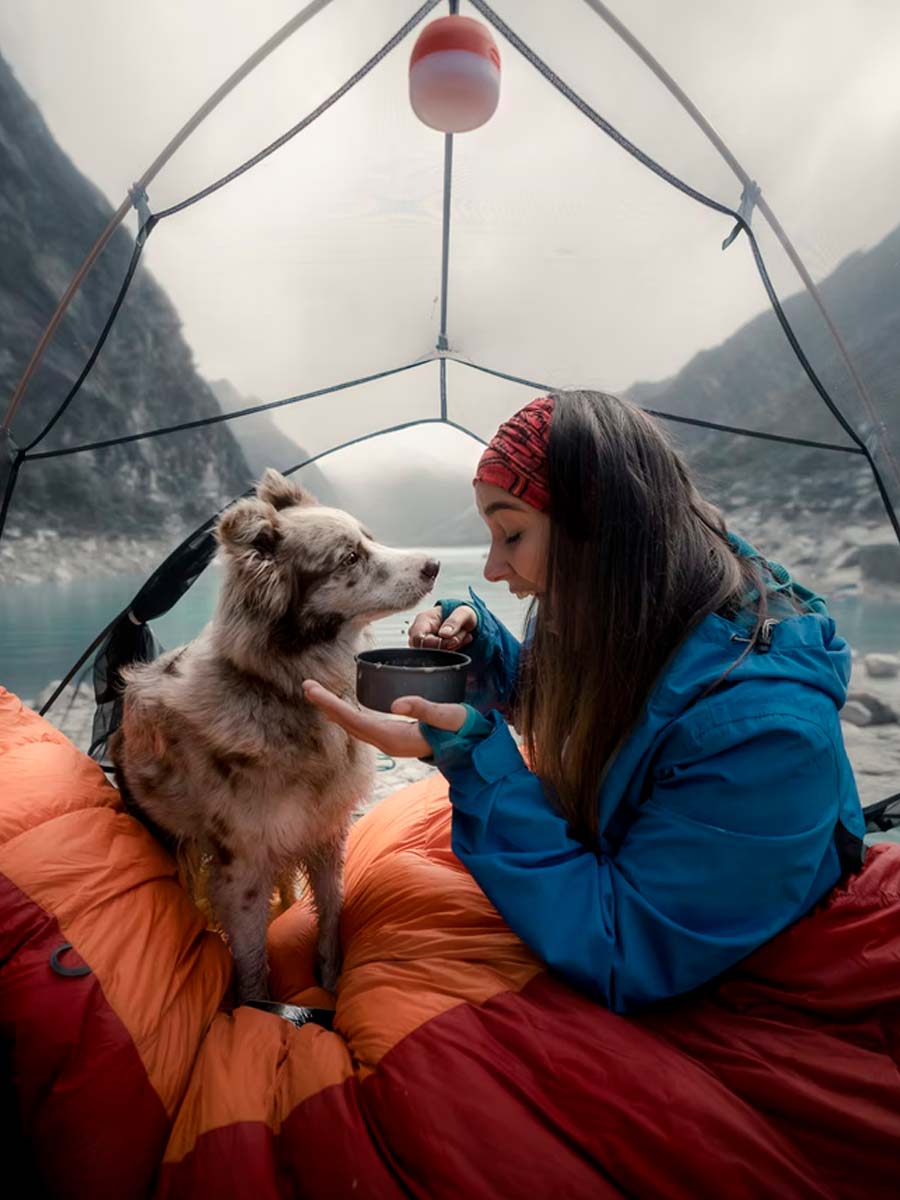

Conclusion on Camping Sleeping Tips
With a few minor preparations in terms of camping sleeping tips and some preparation, you can give yourself the best sleep of your life next time you venture into the great outdoors. Our favorite pick is our KAMUI self-inflating sleeping pad, which is made for family camping in all four seasons.
With the fresh air and sounds of nature around you, it won’t take long to drift off and get a restorative sleep in your tent when you have these camping sleeping tips and camping hacks to follow. Best of all, you’ll have all the energy you need to tackle the fun activities you have planned the next day!
Resources:

